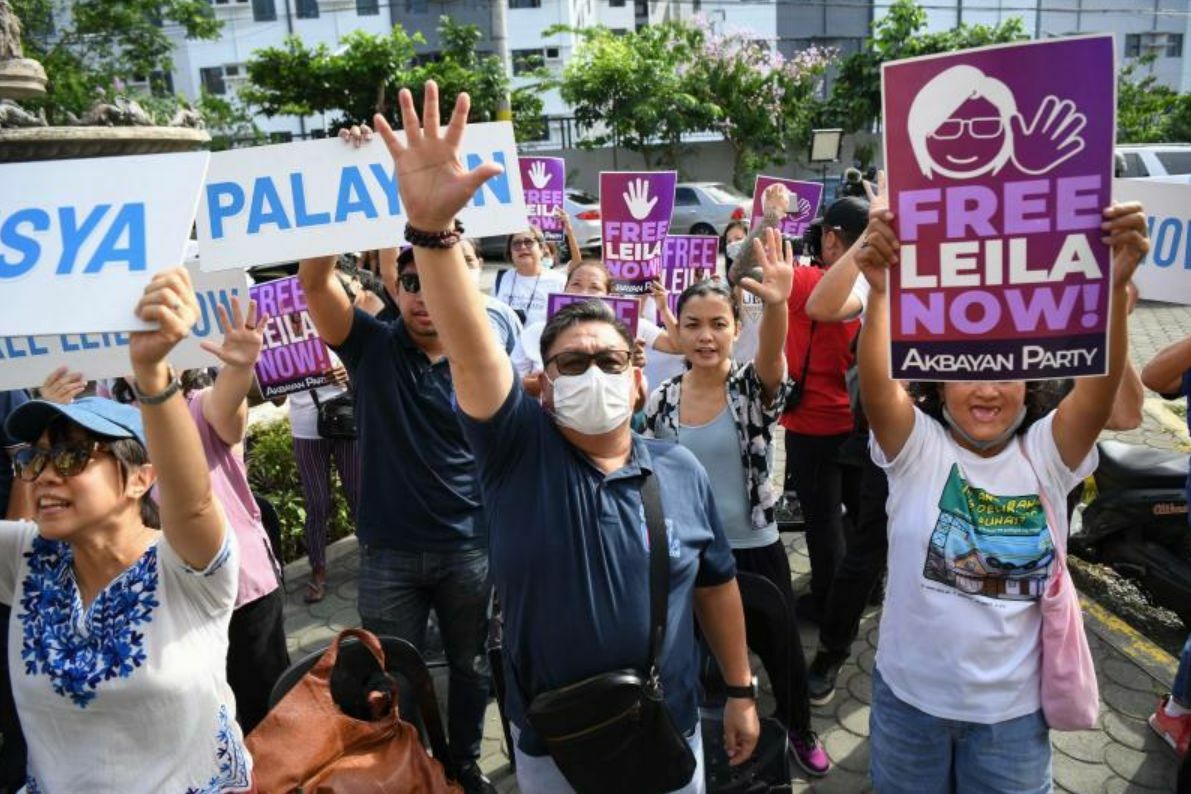Acquittal of Philippine human rights campaigner Leila de Lima brings her closer to freedom

Philippine human rights advocate Leila de Lima, who has been imprisoned since February 2017, was acquitted of one of the two remaining drug trafficking charges against her on Friday, edging her closer to freedom. De Lima, 63 years old and a former senator and justice minister, has faced these charges as retaliation for investigating President Rodrigo Duterte and his controversial war on drugs, according to her supporters and human rights groups.
Around 50 supporters rallied outside the heavily guarded courthouse, calling for de Lima’s release and condemning the allegedly fake evidence. Judge Abraham Alcantara of the regional trial court acquitted de Lima and another defendant on the grounds of reasonable doubt. De Lima expressed relief at the outcome and viewed it as a step towards her vindication.
Although acquitted of one charge, de Lima remains in custody as her trial for the other criminal case proceeds. She has applied for bail and awaits the judge’s decision. Should she be convicted of the remaining charge, de Lima faces life in prison.
As justice minister from 2010-2015 under former leader Benigno Aquino, de Lima is accused of accepting money from inmates in the country’s largest prison in exchange for permitting them to sell drugs. However, the prosecution’s case has weakened, as two witnesses have died, one charge was dismissed, and multiple witnesses have retracted their statements, alleging coercion.
The UN Working Group on Arbitrary Detention concluded in 2018 that de Lima’s detention lacked a legal basis, and her right to a fair trial had not been respected. Diplomats and human rights defenders have since renewed calls for her release.
Before her arrest, de Lima spent ten years examining alleged “death squad” killings that Duterte was said to have orchestrated during his time as Davao City mayor and in the early days of his presidency. She carried out these investigations as the Philippines’ human rights commissioner and as Aquino’s justice secretary, reports Bangkok Post.
In 2016, de Lima secured a Senate seat, emerging as one of the few opposition voices as antipopulist Duterte won in a landslide. Duterte subsequently accused her of operating a drug trafficking ring with criminals, which de Lima has described as an act of “vengeance” meant to silence her and deter others from opposing him. Despite her ongoing incarceration, de Lima campaigned unsuccessfully for re-election to the Senate during last year’s elections.
De Lima has been held in a compound designated for high-profile detainees, separate from the country’s overcrowded prisons. Delays in judicial proceedings are common, as the Philippine justice system is overburdened, underfunded, and vulnerable to intervention from influential figures.
Latest Thailand News
Follow The Thaiger on Google News:


























